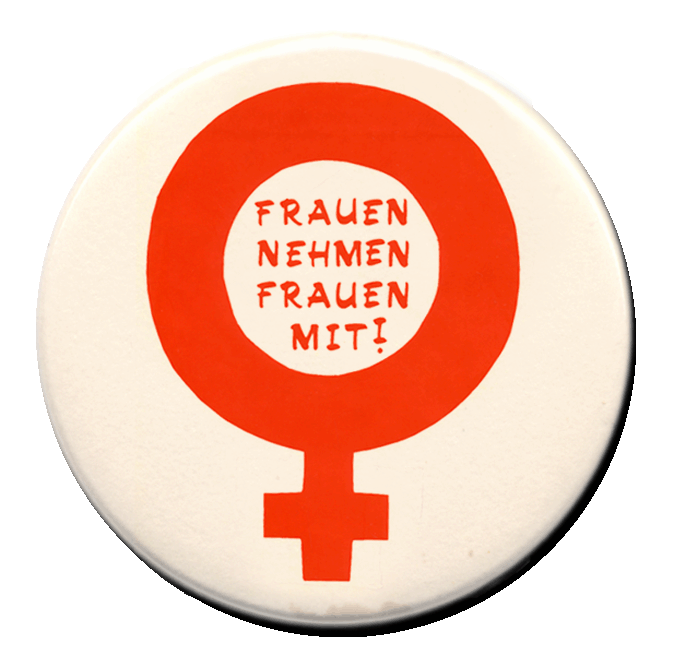The women’s movement as a political movement starts dissolving. It takes on its way into projects and through the institutions – or the retreat into the new interiority. Feminism is omnipresent.
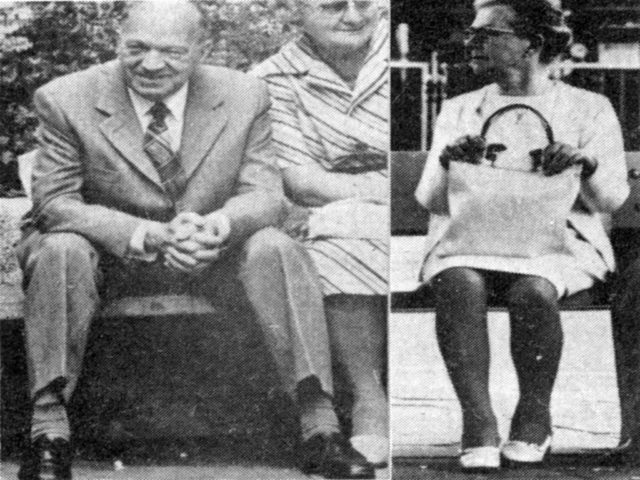
The book „Weibliche“ und „männliche“ Körpersprache als Folge patriarchalischer Machtverhältnisse [„Female“ and „male“ body language as a result of patriarchal power relations] by Marianne Wex appears. For several years, the painter and art teacher had photographed around 6,000 women and men and analyzed their body language. She concludes, „The naturalness with which men take possession of the space around them is a physical expression of their psychological and economic occupation.“
January 1979
An arson attack is committed on the Berlin women’s shelter, which is usually occupied by more than one hundred women. It is already the second attack on the women’s refuge within two years.
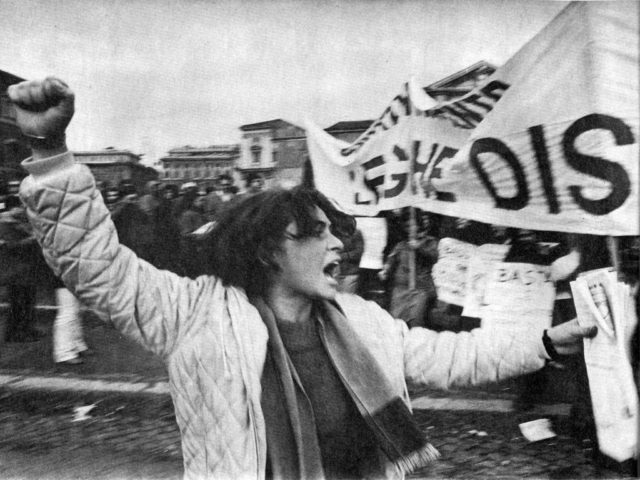
A neo-fascist terrorist group attacks the women’s radio station Radio Donna in Rome. The perpetrators set fire to the editorial staff and wound the five members of the ‚housewife collective‘ who wants to inform about contraception and abortion on this day, with life-threatening shots in the legs and abdomen. That same evening, women’s groups decide on a general strike of all Italian women. The next evening, more than 30,000 women are taking to the streets in Rome alone. They chant: „It was not just a fascist who shot, but the whole organized machismo!“
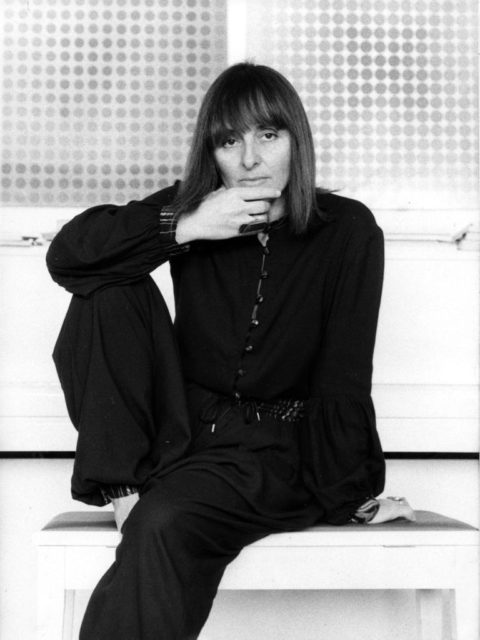
February 5, 1979
With her article ‚Linguistik und Frauensprache‘ and a sensational inaugural lecture at the University of Konstanz, the linguist Senta Trömel-Plötz gives the starting signal to feminist linguistics, which exposes language as ‚men’s language‘ and ‚instrument of domination‘.
March 1979
After the fall of the Shah in Iran, a desperate cry for help from the Iranian women reaches Western European feminists. Following Khomeini’s rise to power, the Islamic fundamentalists disenfranchise those women with whom they had just recently fought side by side against the Shah regime: coeducation and family law are abolished and veiling enforced on women. In Paris, 18 women, including Simone de Beauvoir and Alice Schwarzer, found the Comité International de Défense du Droit des Femmes (Committee for the Defense of Women’s Rights). In order to give Iranian women, now desperately fighting for their rights, a „demonstrative gesture of solidarity,“ the committee is traveling to Iran.
After her return Alice Schwarzer writes about the almost lost fight of the Iranian women (‚Cheated on their hope‘) and is the first person to warn against the danger of Islamic fundamentalism for women’s and human rights. Leftists in the FRG mock the action of the committee as „reactionary“ and „shame friendly“.
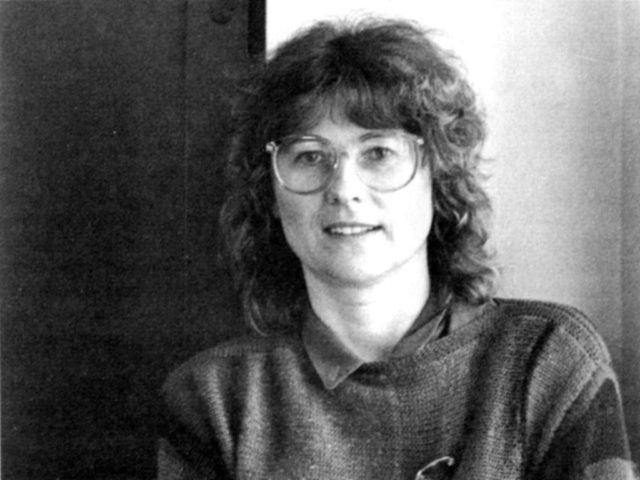
20th-24th March 1979
Over 5,000 women come to the 1st Frauenforum im Revier at the University of Education in Dortmund. Motto: ‚Women learn to understand their everyday life‘. The women’s education event is organized with films, lectures and courses by a group of female lecturers, including Professor of Education Sigrid Metz-Göckel, and students of the University of Dortmund. Above all, the initiators want to address „housewives, mothers and older women“, and they succeed: 90 percent of the participants are non-academics. Two years later, the Frauenforum im Revier, which will be continued for years to come, becomes the nucleus of German ‚Women’s Studies‘ (EMMA 5/97): a study program with women-specific content for non-academics, women, who have passed the family-phase, and other women who were formerly kept from further education with the „you are going to marry anyway“ argument. In the following years, women’s studies will be established at other universities.
4th-6th May 1979
The Berlin emergency call and counseling for raped women initiates a ‚congress for all emergency call centers and initiative groups for raped women‘. The declared aim of the organizers is to „not to discuss the issue of violence against women in general but to discuss the practical work in emergency call centers with those who work there“.
![Wir wollen gleiche Löhne! : Dokumentation zum Kampf der 29 "Heinze"-Frauen. Kaiser, Marianne [Hrsg.]. Reinbek bei Hamburg: Rowolt, 1980. (FMT-Signatur: AR.10.013) Wir wollen gleiche Löhne! : Dokumentation zum Kampf der 29 "Heinze"-Frauen. Kaiser, Marianne [Hrsg.]. Reinbek bei Hamburg: Rowolt, 1980. (FMT-Signatur: AR.10.013)](http://frauenmediaturm.de/wp-content/uploads/2018/05/79_5_TB_Heinze_1_1-480x640.jpg)
May 10, 1979
29 employees from the film processing department of the Gelsenkirchen company Photo Heinze file a law suit for equal pay. The ‚Heinze women‘ win the sensational labour court process in first instance. (Documentation of a fight: The ‚Heinze women‘)
June 1979
The Frauenferienhaus Zülpich opens. Already in 1976 women in Graiganz and Stemmen near Bremen had made an attempt to run holiday homes for women and young people, but had failed due to lack of money and resistance of the rural population. Soon after the Frauenbildungshaus Zülpich, whose concept is based on a mixture of education and recreation, more women’s education and holiday homes are founded. In the following years, a wide range of holiday and educational culture for women is created.
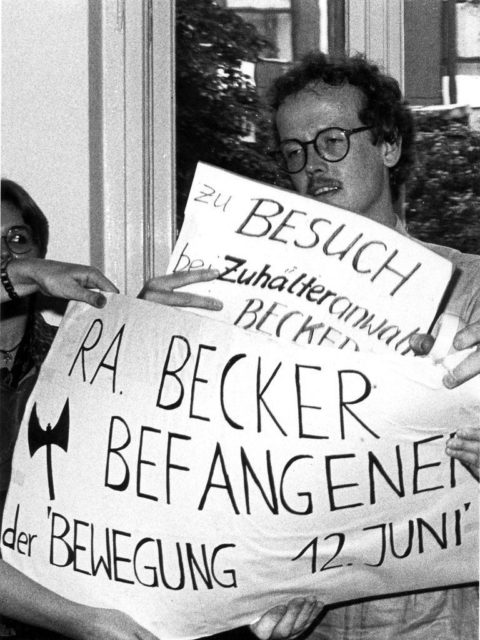
June 12, 1979
A group of 50 women from the Berlin Women’s Center paid Nicolas Becker a visit to his office. The lawyer, who is considered to be „leftist“ and shares the office with RAF defense attorney Otto Schily, had defended a rapist in a rape trial. The action triggers a heated controversy between feminists and leftists. Becker colleague Schily also comments: „Especially because rape is a serious crime, we can not blame any lawyer for defending someone who is suspected of such a crime.“
June 30, 1979
In Berlin, Cologne and Bremen homosexual women and men demonstrate for the tenth
anniversary of Christopher Street Day. On June 28, 1969, gay men and lesbians in the gay café Stonewall in Christopher Street in New York had for the first time defended themselves against a raid and unleashed a veritable street fight.
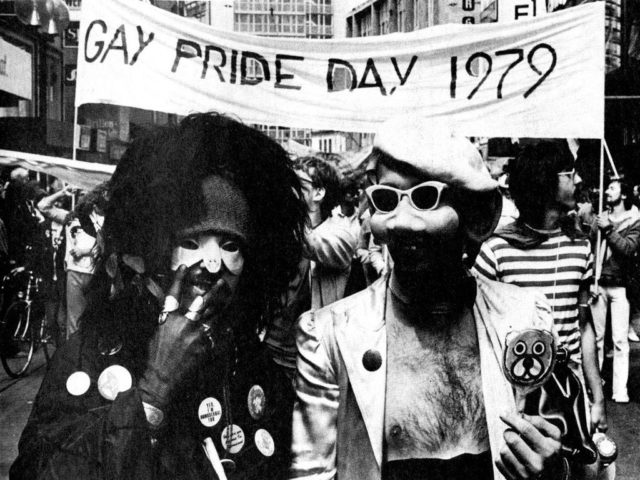
Whereas ten years later in New York about 60,000 lesbians and gays take to the streets for acceptance and against discrimination, in Germany there are only a few hundred. Nevertheless, the German protests are the most spectacular demonstration of homosexual self-esteem so far. Even lesbian women, who in recent years had felt less of the gay and more of the women’s movement, show presence.
July 1979
On the first of July, the law on maternity leave comes into force. It extends the paid „leave“ of the mother after the birth of a child from eight weeks to half a year.
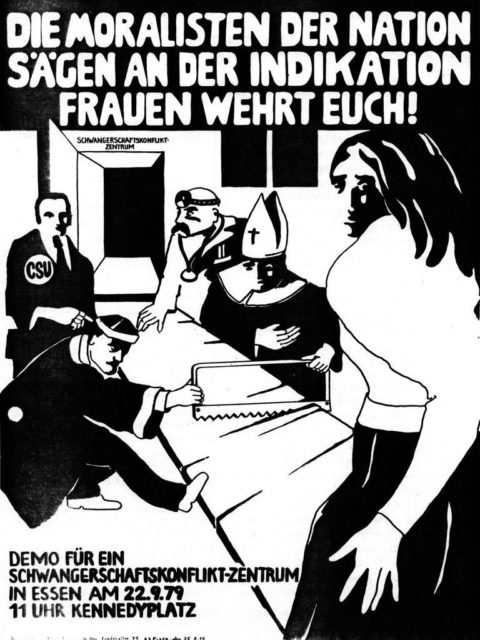
Feminists criticize the law as „cementing a life rule from the Stone Age: dad nourishes the family – Mommy belongs to the child“. They warn against the trap that the long absence from work means for working women and call for a ‚parental leave‘, which also puts the fathers in charge of childcare.
The CSU and the Catholic Church mobilize against §218 in the preselection year. The CSU announced the withdrawal from the reform of the abortion law in case of a victory and attacks women as „mass murderers“. Cardinal Höffner, chairman of the German Bishops‘ Conference: „If abortion is murder, then 73,000 abortions are mass murder.“ The CSU official and physician Hartwig Holzgartner draws parallels between abortions and the Holocaust. „The National Socialists have killed the Jews, the international socialists are killing unborn life.“ The so-called „Lebensschützer“ [life-guards] organize themselves in the umbrella organization „Movement for Life“.
July 21, 1979
In Munich, 18 regional women’s projects from the Munich Women’s Pub to the Women’s Handicraft Collective found the Verein Frauen gehen zu Frauen. The aim is to network the projects and establish a joint fund to make the granting of credits independent of banks.
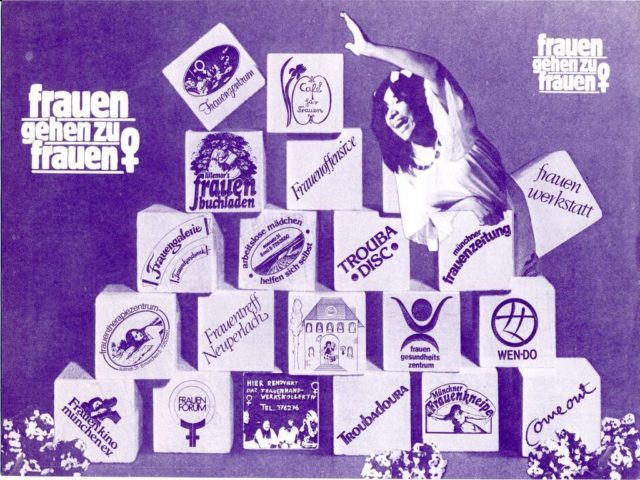
15-16. September 1979
On initiative of the magazine Courage the „anti-military and anti-nuclear congress of the women’s movement“ takes place in Cologne. With a „Die-in“ in front of the cathedral approximately 1,000 participants protest against the „retrofitting“ of the Federal Republic. The so-called NATO double decree provides for the deployment of medium-range missiles in the FRG. Thus, the forming peace movement fears, the Federal Republic could become the potential target of Soviet missiles. As before, the controversy raging for the opening of the Bundeswehr for women.
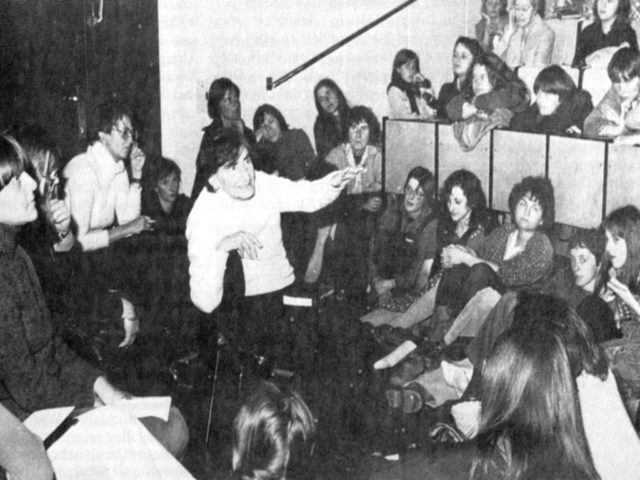
October 1979
In Warendorf, 24 women – mostly former SPD members who are disappointed with their party’s women’s policy – build up a new ‚women’s party‘. In addition to specific demands such as the anti-discrimination law, a quota system for jobs and training places and the abolition of nuclear energy, the party is committed to the values of „creativity, spontaneity and emotionality“. The founders are being sharply criticized for their „solo effort“ at the 4th Women’s Summer University in Berlin
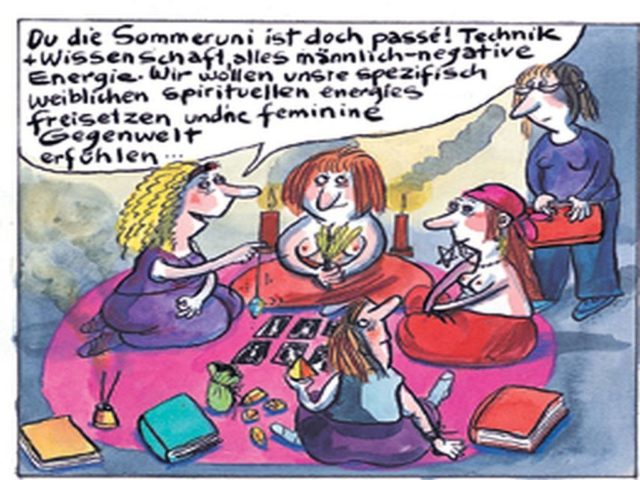
The 4th Women’s Summer University in Berlin (1.-6.10.) reflects the current state of the women’s movement in its range of topics. On the one hand, the motto „autonomy or institutionalization“ deals with the question of political interference in the established institutions and policy areas. On the other hand, attention is drawn to the risk of weakening the women’s movement in the women’s project culture. The trend towards the mystification of femininity, ’new inwardness‘ and esotericism also manifests itself in some events.
November 1979
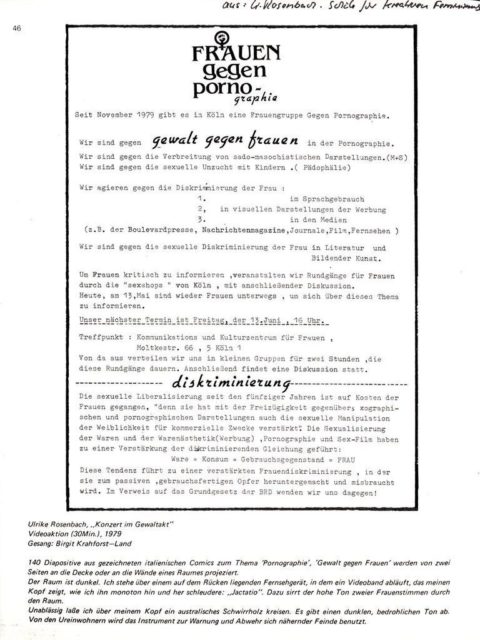
In Cologne, the group women against pornography is founded. It explains: „Sexual liberalization since the 1950s has been at the expense of women, because it has also increased the sexual manipulation of femininity for commercial purposes by tolerating pornographic depictions.“
The Artist Ulrike Rosenbach is part of a group that sends an open letter to , Family Minister Antje Huber. They invite her to join them on informational visits to sex shops intended to discuss „the incredible brutality“ that „violates the human dignity of women“. The minister, who rejects „direct state intervention with law and police“ refuses.
Outlook:
From now on, one can no longer speak of a movement in the political sense – ie a loose organizational connection of groups and projects with the same goals. The feminists have started a march through the institutions and into the world: they have become committed teachers, journalists or politicians, they organize projects or start up companies. They retreat to „Frauenland“ or explain feminism as „outdated“. They become mothers or make careers. Feminism is no longer part of a „movement“, but permeates the entire society and takes on various forms in the 80s and 90s.


